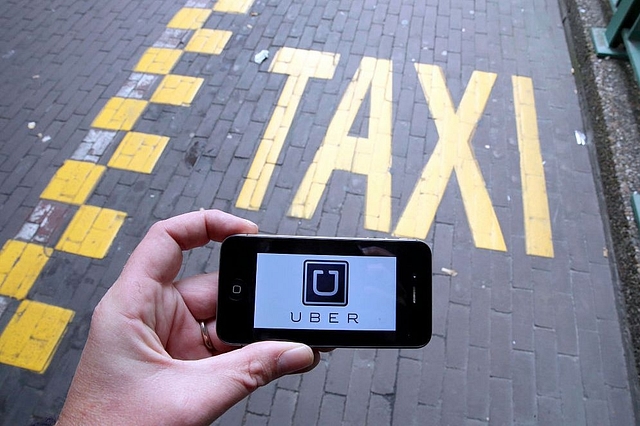
Uberising Faster And Better: What India Can Learn From UK Verdict On Treating Drivers As Workers
Uberisation will get a bad name if it is equated with exploitation of workers desperately in need of incomes.
We have to Uberise faster, but with better and fairer regulations.
A few days ago, the United Kingdom Supreme Court, in a case involving Uber drivers, said that its drivers were not self-employed contractors but workers. This means Uber drivers will not only be entitled to minimum wages as set in the law, but also holidays and vacation pay. Since this is the final court of appeal, Uber has no option but to treat its drivers as workers if it wants to do business in the UK.
The implications are likely to be profound not only for Uber’s business model in the UK, but also for regulations on app-based taxi services everywhere. The UK verdict will be closely studied and applied — possibly with modifications — in other geographies around the world.
The reasons given by the UK Supreme Court for its verdict are the following: given the kind of tough conditions Uber sets for drivers, it cannot then pretend it has no responsibility towards those tied to its app for livelihoods. The court pointed out that Uber set the fares and contract terms, not the drivers. Uber could also penalise drivers for refusing too many rides, something they could do easily if they were actually self-employed. Uber could also unilaterally end a driver’s services based on customer feedback and ratings. These kinds of stipulations show that Uber sets the rules for its drivers — almost like how a company would do if it had hired them as employees.
While many free-marketeers will tut-tut at the way the Supreme Court has interfered with Uber’s innovative business model, this decision cannot be dismissed as just that. The reality is that technology has created two classes of workers, those who are highly-skilled and earn super incomes, and the rest who are dependent on technology for livelihoods, and who have no control over their working conditions or quality of life.
Consider not just the Uber and Ola drivers, but also the millions of people employed all over the world and in India, for the Amazons, Swiggys and Zomatos as well as those providing household and office security and facility management services.
Clearly, what the UK Supreme Court has done is to push back against the excessive powers wielded by tech companies over lower-skilled contract workers or suchlike “employees”.
In July 2017, a UK committee led by Matthew Taylor submitted its report on modern working practices (Good Work: The Taylor Review of Modern Working Practices) so that flexible work practices are not loaded against the worker. Specifically, in the case of Uber and other such app-based employers, the Taylor report had this to say:
“Platform based working offers welcome opportunities for genuine two-way flexibility and can provide opportunities for those who may not be able to work in more conventional ways. These should be protected while ensuring fairness for those who work through these platforms and those who compete with them. Worker (or ‘Dependent Contractor’ as we suggest renaming it) status should be maintained but we should be clearer about how to distinguish workers from those who are legitimately self-employed.”
In short, the Taylor report too suggested that Uber’s drivers are workers, and they can be differentiated from self-employed drivers by being called “dependent contractors.”
On the upside, once Uber recognises its drivers as equivalent to workers, it would be entitled to demand specific types of services and quality work from them. Drivers may need to make themselves available for some minimum hours when they are not needed, and not just when it suits them. Worker status is not a one-way street, especially when the Supreme Court judgement says that as long as a driver is logged in to the app, he can be considered to be at “work”, and thus entitled to minimum hourly wages, even if he does not get a ride.
In India, some kind of flexible worker status for Uber and Ola drivers would make sense, too. In the absence of such rules, many drivers, in order to maximise earnings, tend to log in to multiple platforms and then pick and choose their ride. The downside of this one-way dictation of work status for drivers is that those with families to feed and EMIs to pay for their vehicles get desperate to earn any which way they can, upsetting paying customers if need be. This can’t be very good for Uber’s or Ola’s reputations, even though the drivers are not currently seen as equal to employees.
Giving drivers worker status can cut both ways, and app-based taxi-hailing services should enter into contracts that work for both parties, including the terms of revenue sharing, hours of work, paid off-time, etc.
In India, instead of looking at app-based work as flexible employment that must be encouraged, most state government have tried to hinder Uberisation not to protect workers and consumers, but to protect legacy taxi and auto services. It is time to focus on making the app-based contract work for all stakeholders — the company, the driver and the user. Uberisation, which will create multiple millions of job opportunities all over India, will get a bad name if it is equated with exploitation of workers desperately-in-need of incomes.
We have to Uberise faster, but with better and fairer regulations.